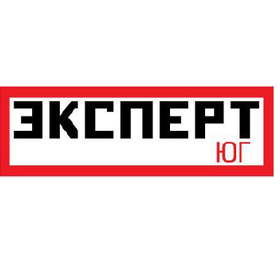In 2019, the Russian oil industry may finally introduce the excess-profits tax.
The necessity of EPT is already mentioned almost two decades. It is expected that this tax, designed to partially replace the Mineral Production Tax (MPT), stimulates the development of new deposits and will speed up the modernization of domestic oil refining. Additional revenues to the budget from the EPT are estimated at a trillion rubles, but in case of introduction this mechanism, all the nuances, that prevented its introduction before, will be taken into account.
MPT “on crutches”
Firstly, the excess-profits tax was proposed in 1998 in the conditions of a fall in world oil prices, which largely provoked the Russian August default.
"The ETM was considered as an anti-crisis measure: they were asked to replace excise taxes on oil, the rate for which was set in a firm amount of money," recalls the CEO of the National Law Company “Mitra”, Yury Mirzoev. - The law drafters justified the need of introduction ETM with fears that oil workers will wind down production, which ultimately could lead to a reduction in jobs at enterprises of the oil industry and related industries, unemployment, the mass resettlement of people from the north and the desolation of cities and towns. Optimistic forecasts concerning the implementation of the consolidated budget were given."
In 1999, oil prices began to rise and the grounds for the introduction of EPT was felt. In August 2001, the main tax for extractive industries was the severance tax, the rates for it were set as a percentage. Although only two years later it became clear that the principle of taxation was far from ideal, and the issue of EPT was raised again.
"The authors of the project noted that the undifferentiated rate of severance tax, unified for all deposits, has a negative impact on oil production in hard-to-reach regions in the situation of high world oil prices," Mirzoev said. - It turned out that the share of mineral extraction tax in the cost of oil produced near export points is much lower than its share in the cost of oil produced in Eastern Siberia and processed in the depth of Russia with subsequent sale there. In fact, there was a redistribution of a part of the revenues of enterprises that extract oil in hard-to-reach regions, in favor of producers with an advantageous location. It was argued that the introduction of EPT would create the conditions for a favorable investment climate, ensure the re-entry of idle wells, and the development of new fields. The developers highly appreciated the tax consequences of the new tax due to the increase in oil production by 10-30 million tons per year. "
The task of high complexity
If we understand EPT as the embodiment of the principle of differentiated approach to oil producing companies, the new mechanism is not something unique according with the point of view of world practice. From the nearest neighbors of Russia quite complex system of taxation of subsoil users is applied in Kazakhstan.
According to Mirzoev, it includes a number of payments: bonuses (subscription and commercial detection), payment for reimbursement of historical costs, MPT (different for oil, minerals, common minerals, groundwater and therapeutic mud). In the Tax Code of Kazakhstan, a super-profit tax is levied on a part of the net income determined for each individual subsoil use contract for a tax period exceeding 25% of the amount of deductions (expenses, losses). Excess profit tax rates in Kazakhstan can reach 60%, that is higher than the proposed rate of EPT.
But the taxation of additional income is more difficult for tax administration than the MPT, export duties and profit tax, warns Mirzoev. The introduction of a new regime into the Russian tax system requires resolving a number of issues.
"It, in particular, is linked with determining the market level of the price on the realized hydrocarbons and controlling the level of development costs. And the transfer of payment of most of the taxes for the period after the recoupment of costs deprives the state of guaranteed budget revenues," the expert notes.
According to Mirzoev, introduction of EPT is only advisable for new deposits - all those where development and production of oil will begin after the adoption of the law. Tax liabilities for payment of NDM for each license area should be determined separately. In this case, the reduction of general tax revenues from the oil sector will be insignificant - the share of new deposits in total oil production in Russia is small. You should also take into account possible loopholes.
"Under the real system of accounting and taxation, the lack of transparency in the activities of most mining companies, many of which have hundreds of subsidiaries and dependent companies, the tax administration methods can`t provide the state with revenues from its mineral reserves. A system based on EPT can stimulate overstatement of the costs of extracting organizations and not contribute to cost savings and optimization of activities, "Mirzoev admits.
Materials were taken from “Neft&Kapital”


